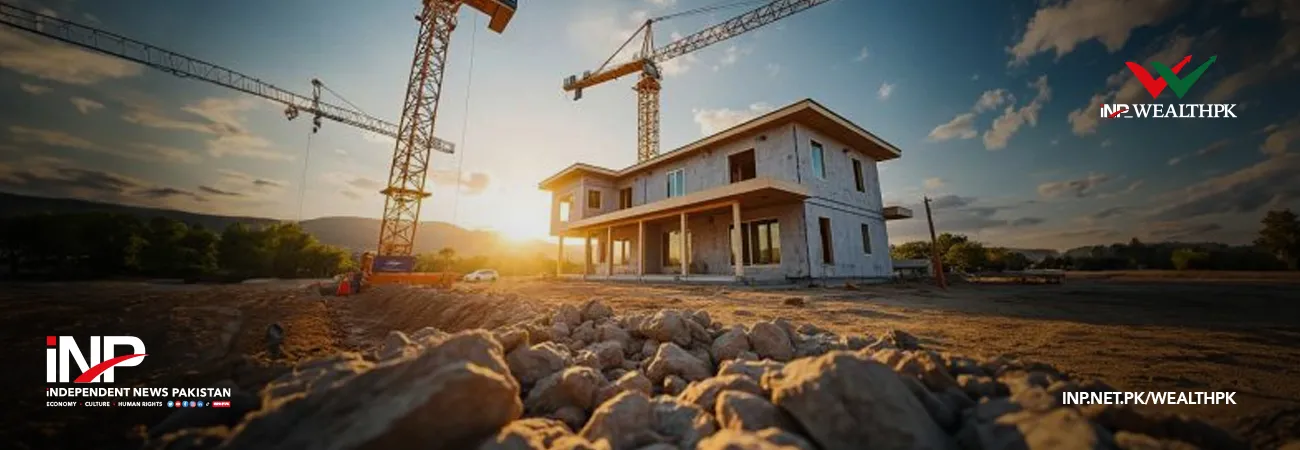INP-WealthPk
Ayesha Saba
The government should incentivise adoption of advanced construction technologies in Pakistan’s housing sector for sustainable urban development.

Recently, a Chinese delegation, comprising business leaders with expertise in modern construction solutions, held detailed discussions with Pakistani counterparts. The delegation showcased its capabilities in prefabricated and modular construction — building techniques in which major components are manufactured off-site and then assembled on location.
These methods, widely used in China to cope with the demands of rapid urbanisation, offer a practical solution to Pakistan’s own housing crisis. Dr Ali Raza, an urban development specialist at GIZ Pakistan, noted that Pakistan faces a housing deficit of over 10 million units, a crisis exacerbated by rapid urbanisation and population growth. “Traditional construction methods are slow and labour-intensive, making it difficult to bridge this gap,” he said.
“By adopting Chinese expertise and technologies Pakistan can accelerate the delivery of affordable homes without compromising quality.” Raza further emphasised that these technologies not only enhance efficiency but also ensure higher quality control, seismic resistance, and environmental sustainability — all of which are critically needed in Pakistan’s urban planning.
He highlighted that the infusion of Chinese construction technology will necessitate skill development programmes in Pakistan, providing local workers with training in new techniques. “This will create employment opportunities while also enhancing the capacity of domestic construction firms. Furthermore, increased activity in housing and allied sectors like cement, steel, glass, and fittings will contribute to industrial growth and boost local production.”
However, Raza cautioned that this collaboration should be pursued with a focus on long-term capacity building. “It’s imperative that technology transfer is prioritised, so Pakistan can develop its own technical expertise and gradually reduce dependence on foreign support,” he said. However, he also added that successful implementation will require strong policy support and regulatory adjustments.
“Bureaucratic hurdles, outdated zoning laws, and financing challenges could slow down progress.” He suggested that the government should introduce incentives for developers adopting advanced technologies while ensuring that these innovations are accessible to low-income groups. “Public-private partnerships will be crucial in making these projects viable.”
Credit: INP-WealthPk











